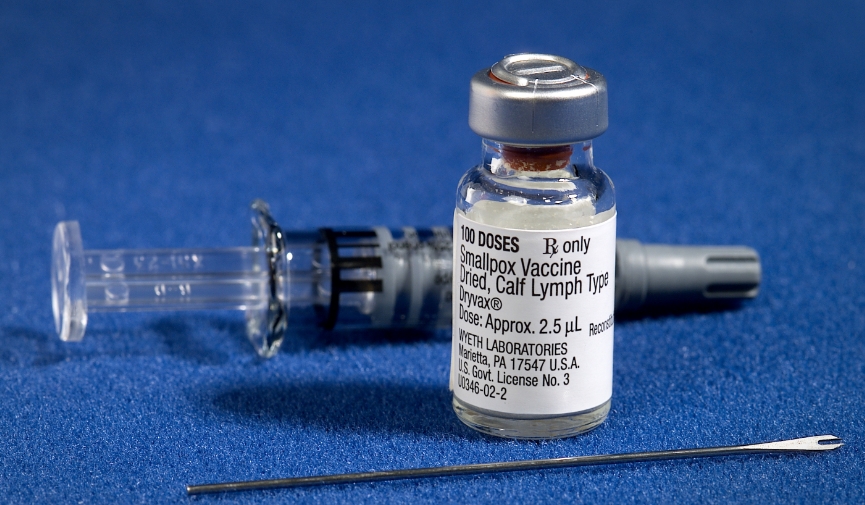Vaccine tyranny throughout history: Caribbean slave owners infected women and children with smallpox to “make them stronger”
08/28/2017 / By Ethan Huff

The historical roots of Big Pharma are a chillingly ugly matter, as it’s been shown time and time again that the industry has taken advantage of vulnerable populations to shamelessly advance its agenda. In the case of Caribbean slaves, new evidence suggests that so-called doctors from Great Britain deliberately injected many of them with smallpox to see how the deadly viral disease would affect them.
A British doctor by the name of John Quier had reportedly developed a “perfect cure” for yaws when such medical experimentation was commenced in rural Jamaica – yaws being a terrible tropical infection of the bones, skin, and joints that usually rears its ugly head amidst extreme poverty and poor sanitation. To see if his “perfect cure” would work, Quier decided to test it on slaves working the sugar plantations whose owners gave him permission to use them as human guinea pigs.
It was around 1768, the year when smallpox became an epidemic, that Quier tested his smallpox inoculation on about 850 Caribbean slaves, including menstruating and pregnant women, as well as newborn babies. Many slave owners actually employed Quier to test the inoculation on their slaves, without their consent – an extreme human rights violation that we’ve seen occur again and again throughout history in conjunction with pharmaceutical drugs and vaccines.
“My new book, ‘Secret Cures of Slaves: People, Plants, and Medicine in the Eighteenth-Century Atlantic,’ zeroes in on human experimentation on Caribbean slave plantations in the late 1700s,” writes Londa Schiebinger for The Conversation. “Were slaves on New World sugar plantations used as human guinea pigs in the same way African-Americans were in the American South centuries later?”
British doctors conducting medical experiments on slaves weren’t concerned about human life
The answer to Schiebinger’s question appears to be resounding yes, with an even darker caveat. Quier and his human rights violators apparently conducted additional testing using smallpox vaccines that went far beyond simply determining their efficacy. Based on historical records, Quier also used slaves as human guinea pigs to determine the dangers of the experimental smallpox vaccines, using the most vulnerable of the slaves as victims.
“Quier did not simply inoculate to prevent disease,” Schiebinger adds. “We see from his reports that he used slaves to explore questions that doctors in Europe dared not.”
“He also wanted to know if it was safe to inoculate newborn infants or a person already suffering from dropsy, yaws or fever and the like … In his letters to colleagues in London, Quier reported that, to answer these questions, he sometimes inoculated repeatedly in the same person and at his own expense.”
In other words, plantation slaves were treated no differently than laboratory rats of today, with so-called “physicians” taking advantage of these poor folks while feeding their own scientific curiosities about experimental “medicines.” If a slave or two was permanently injured or killed as a result, it was considered to be a worthy sacrifice for the advancement of “science.”
Such heinous medical experimentation has occurred many times since, including in the Nazi death camps where victims were used as human guinea pigs in the illicit testing of pharmaceuticals for companies like Bayer, Hoechst, and BASF. And it still continues today, often in poor and developing countries where vaccines and drugs are administered under the guise of public health simply to test their efficacy and safety.
The infamous Tuskegee Syphilis Study is a prominent example of this. More than 200 poor black men were diagnosed with syphilis in Alabama back in the 1930s, but rather than receive proven treatment they were given experimental drugs without consent.
Sources for this article include:
Submit a correction >>
Tagged Under:
carribbean, experimentation, human rights, medical, medical experiments, medical history, pharmaceuticals, slavery, vaccines
This article may contain statements that reflect the opinion of the author
RECENT NEWS & ARTICLES
COPYRIGHT © 2021 Smallpox.news
All content posted on this site is protected under Free Speech. Smallpox.news is not responsible for content written by contributing authors. The information on this site is provided for educational and entertainment purposes only. It is not intended as a substitute for professional advice of any kind. Smallpox.news assumes no responsibility for the use or misuse of this material. All trademarks, registered trademarks and service marks mentioned on this site are the property of their respective owners.




















